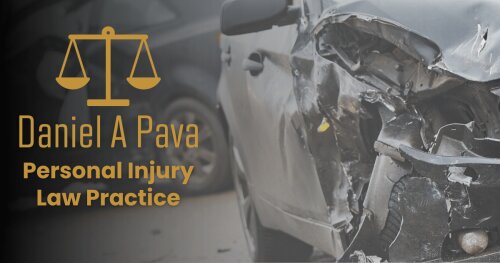Best Birth Injury Lawyers in Georgia
Share your needs with us, get contacted by law firms.
Free. Takes 2 min.
Or refine your search by selecting a city:
List of the best lawyers in Georgia, United States
About Birth Injury Law in Georgia, United States
Birth injury law in Georgia covers cases where a newborn suffers harm that occurs before, during, or immediately after childbirth due to medical error, negligence, or malpractice. These injuries can have lasting impacts on a child's life, and on the family. The law provides a way for affected families to seek compensation from the responsible healthcare professionals or facilities. Birth injury cases are complex, requiring an understanding of both medical and legal aspects.
Why You May Need a Lawyer
A lawyer specializing in birth injury cases can help navigate the complicated process of seeking justice and compensation. Common situations where legal help is needed include:
- When a doctor, nurse, or medical facility failed to follow standard of care, leading to injury
- If your child has been diagnosed with conditions like cerebral palsy, Erb’s palsy, brain damage, or other injuries that may be linked to birth complications
- When you are unsure whether medical negligence took place and need guidance investigating the cause of injury
- When insurance companies or hospitals deny responsibility or offer inadequate settlements
- If you need help understanding what potential compensation you may be entitled to under Georgia law
Legal professionals can gather evidence, consult with medical experts, and negotiate with insurers to build a strong case on your behalf.
Local Laws Overview
Georgia law defines the legal responsibilities of healthcare professionals involved in childbirth. Some key aspects include:
- Statute of Limitations: In Georgia, most medical malpractice and birth injury lawsuits must be filed within two years from the date the injury was discovered or should have been discovered. For minors, the deadline may be extended, but claims generally must be brought before the child's seventh birthday.
- Certificate of Merit: Georgia requires that a qualified medical expert provide an affidavit attesting that the injury was likely the result of negligence, to initiate a lawsuit.
- Comparative Fault: If both the healthcare provider and the parent are found partially responsible, damages may be reduced based on the parent’s share of fault under Georgia’s modified comparative negligence rules.
- Damages: Compensation may include medical expenses, ongoing care, pain and suffering, and sometimes punitive damages if the conduct was especially egregious.
These laws are subject to change, so working with a knowledgeable legal professional is essential to ensure your case meets all procedural requirements.
Frequently Asked Questions
What is considered a birth injury under Georgia law?
A birth injury is harm that occurs to a baby or mother during the labor and delivery process, or in some cases, shortly before or after birth, typically as a result of medical negligence or malpractice.
How do I know if my child's injury was caused by medical negligence?
A medical expert must review the details of the case to determine whether the standard of care was violated. Lawyers can help coordinate this review and gather the necessary medical records and opinions.
What types of birth injuries may qualify for a legal claim?
Common injuries include cerebral palsy, Erb’s palsy, brachial plexus injuries, brain damage due to oxygen deprivation, fractures, and facial paralysis. Other injuries linked to negligent care may also qualify.
How long do I have to file a birth injury lawsuit in Georgia?
Generally, you have two years from the date of injury discovery to file a lawsuit. For injuries to minors, you typically must file before the child turns seven years old.
What compensation is available for birth injury victims?
Compensation can cover current and future medical bills, long-term care costs, lost wages, pain and suffering, and in some cases, punitive damages.
Do I need a certificate of merit to file a case?
Yes. Georgia requires an affidavit from a qualified medical expert indicating that negligence likely occurred and caused the injury, to initiate a lawsuit.
Will my case go to trial?
Many birth injury cases are settled out of court, but some proceed to trial if a fair settlement cannot be reached. Your lawyer can advise based on your specific case.
What if the hospital or doctor denies wrongdoing?
You may still file a claim. Your legal team can investigate, collect evidence, and work with experts to prove your case in negotiations or court.
How much does it cost to hire a birth injury lawyer?
Many lawyers work on a contingency fee basis, meaning you pay nothing upfront and fees are collected as a percentage of any awarded compensation.
How can I begin the process of seeking compensation?
Consult with a qualified birth injury attorney who can evaluate your case, collect evidence, and file the necessary paperwork per Georgia law.
Additional Resources
If you are looking for help or more information about birth injury in Georgia, these resources may be useful:
- Georgia Department of Public Health
- Georgia Composite Medical Board
- Office of the Georgia Insurance Commissioner
- Georgia Legal Aid
- United States Department of Health and Human Services - Office for Civil Rights
- March of Dimes Georgia Chapter
These organizations can provide guidance, help you find support services, and, in some cases, direct you toward qualified legal professionals.
Next Steps
If you believe your child suffered a birth injury due to medical error or negligence in Georgia, take the following steps:
- Document everything related to the pregnancy, birth, and care of your child, including keeping all medical records and bills.
- Contact a qualified birth injury attorney for a free consultation to review the facts of your case.
- Ask about the statute of limitations and other key legal requirements so you do not miss any deadlines.
- Do not discuss potential settlements or sign paperwork from insurers or healthcare providers before speaking with your lawyer.
- Utilize local support groups or state organizations to access additional resources as you move forward with your claim.
Seeking legal help can feel overwhelming, but early action gives you the best chance at protecting your child’s future and holding responsible parties accountable.
Lawzana helps you find the best lawyers and law firms in Georgia through a curated and pre-screened list of qualified legal professionals. Our platform offers rankings and detailed profiles of attorneys and law firms, allowing you to compare based on practice areas, including Birth Injury, experience, and client feedback.
Each profile includes a description of the firm's areas of practice, client reviews, team members and partners, year of establishment, spoken languages, office locations, contact information, social media presence, and any published articles or resources. Most firms on our platform speak English and are experienced in both local and international legal matters.
Get a quote from top-rated law firms in Georgia, United States — quickly, securely, and without unnecessary hassle.
Disclaimer:
The information provided on this page is for general informational purposes only and does not constitute legal advice. While we strive to ensure the accuracy and relevance of the content, legal information may change over time, and interpretations of the law can vary. You should always consult with a qualified legal professional for advice specific to your situation.
We disclaim all liability for actions taken or not taken based on the content of this page. If you believe any information is incorrect or outdated, please contact us, and we will review and update it where appropriate.
Browse birth injury law firms by city in Georgia
Refine your search by selecting a city.














